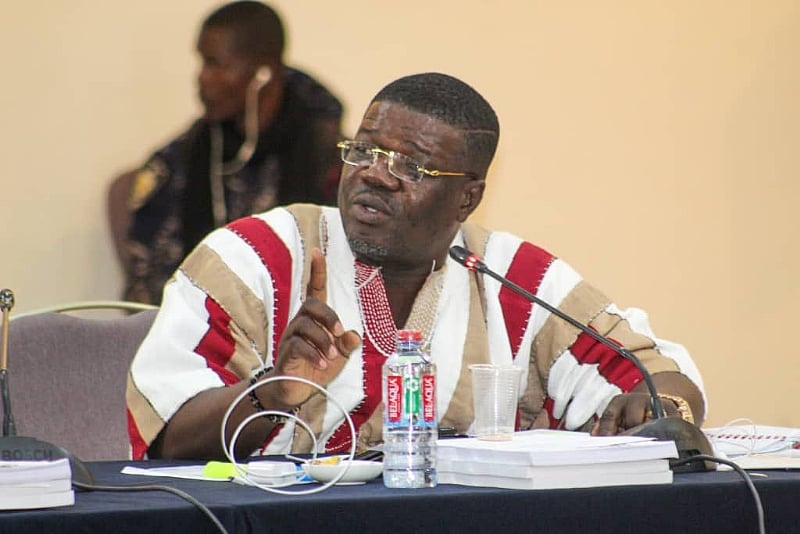The controversy surrounding the Operation Recover All Loots (ORAL) initiative, launched by the Ghanaian government, has ignited a heated debate between the ruling party and the opposition, particularly the New Patriotic Party (NPP). Rockson-Nelson Dafeamekpor, Member of Parliament for South Dayi, has challenged the NPP’s criticisms of ORAL, questioning their basis and highlighting what he perceives as a double standard in their approach to government initiatives. Dafeamekpor contends that the NPP’s insistence on statutory backing for ORAL is inconsistent with their own past actions, citing examples like the Free Senior High School (SHS) program and Operation Galamstop, both of which were implemented without explicit legal frameworks. This discrepancy, according to Dafeamekpor, undermines the NPP’s current objections to ORAL and suggests a politically motivated stance rather than a principled concern for legality.
The core of the NPP’s argument against ORAL lies in their assertion that the initiative lacks constitutional backing and duplicates the functions of existing institutions. They argue that bodies like the Police Criminal Investigations Department (CID), the Economic and Organised Crime Office (EOCO), and the Office of the Special Prosecutor already possess the mandate and resources to investigate corruption allegations. Establishing a separate body like ORAL, they contend, is not only redundant but also potentially undermines the authority and effectiveness of these established institutions. Furthermore, the NPP expresses concerns about the potential for political bias within ORAL, suggesting that it could be used to target political opponents and settle scores rather than genuinely pursuing justice and recovering misappropriated funds.
Dafeamekpor, however, dismisses these arguments, emphasizing that not every government program requires explicit statutory backing to be legitimate. He points to the numerous initiatives implemented by previous administrations, including those of the NPP, which operated without specific legal frameworks. He argues that the focus should be on the effectiveness and impact of the initiative rather than getting bogged down in technicalities about statutory backing. Moreover, he suggests that the NPP’s insistence on legal frameworks for ORAL might stem from a fear of being held accountable for past actions, implying that the initiative could uncover instances of corruption involving members of their party.
The debate over ORAL highlights a broader tension within Ghanaian politics regarding the balance between executive power and legal frameworks. While the NPP emphasizes the importance of adhering to established legal procedures and avoiding potential abuses of power, Dafeamekpor and proponents of ORAL argue for a more pragmatic approach, prioritizing the need to address pressing issues like corruption even in the absence of explicit statutory authorization. This tension reflects differing views on the role and scope of government intervention and the extent to which executive actions should be constrained by pre-existing legal frameworks.
The controversy surrounding ORAL also raises questions about the effectiveness and impartiality of existing anti-corruption institutions in Ghana. While the NPP argues that these institutions are sufficient to handle corruption investigations, the very existence of ORAL suggests a perceived gap in their capacity or willingness to pursue certain cases. This perception, whether justified or not, underscores the need for greater public trust and confidence in the integrity and effectiveness of these institutions. Addressing this issue requires not only strengthening the capacity of existing bodies but also ensuring their independence from political influence and promoting transparency in their operations.
Ultimately, the debate over ORAL transcends the specific initiative itself and reflects deeper concerns about governance, accountability, and the fight against corruption in Ghana. The NPP’s emphasis on legal frameworks underscores the importance of due process and preventing potential abuses of power, while Dafeamekpor’s arguments highlight the need for decisive action in addressing pressing national issues. Finding a balance between these competing priorities is crucial for ensuring effective governance and maintaining public trust in the government’s commitment to combating corruption. The ongoing debate over ORAL serves as a reminder of the complex challenges involved in navigating this delicate balance and the need for ongoing dialogue and engagement between different stakeholders to find solutions that are both effective and respectful of the rule of law.














